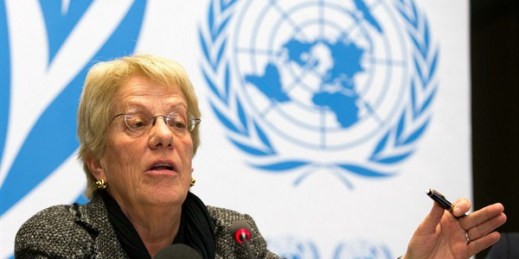
Amid the torrent of news this week regarding multiple brewing crises from North Korea to Venezuela, one item of seemingly minor importance managed to filter through. It was a personnel matter, a bureaucrat’s decision, but one that highlights the magnitude of the current struggle to develop an international system for conflict resolution, accountability and justice. On Sunday, the Independent International Commission of Inquiry on Syria confirmed that its most prominent member, Carla del Ponte, had resigned from the body. The resignation points to a major flaw in the system: the ability of powerful players, in this case Russia, to thwart […]

